This article was co-authored by wikiHow Staff. Our trained team of editors and researchers validate articles for accuracy and comprehensiveness. wikiHow's Content Management Team carefully monitors the work from our editorial staff to ensure that each article is backed by trusted research and meets our high quality standards.
There are 9 references cited in this article, which can be found at the bottom of the page.
This article has been viewed 66,407 times.
Learn more...
When it comes to superfoods, amla has tons of healing properties and is one of the fruits with the highest vitamin C content. Also known as Indian gooseberry, it can be eaten in many different forms and is a key component in Ayurveda, which is an ancient holistic health practice. Eat the lime green berries raw, incorporate them into a delicious dish, or mix amla powder into smoothies, juices, and more.
Steps
Preparing Fresh Amla
-
1Sprinkle salt on fresh amla slices to enhance the flavor. A pinch of sea salt or Himalayan pink salt atop the fruit will bring out its sweetness and add depth. It also takes away some of the sour notes of the amla.[1]
- You do not need to peel the amla before slicing and eating it.
- Find fresh amla at an Indian grocery store when it's in season from December to April or order it from an online retailer.
How to Pick a Ripe Amla
Feel for firmness. The amla should be slightly firmer than a grape.
Choose full, round fruits. Amlas that are irregularly shaped are either unripe or less flavorful.
Look for a neon yellowish-green hue. If they're too green, they not be ripe yet.
Avoid bruises or bad spots. Fruits with these will mold faster and may already be rotting inside.
-
2Dry slices of amla in the sun for a superfood snack. Slice the amla and lightly toss the slices with lemon juice and salt. Set the slices on a plate outside in direct sunlight for a few days until they’re completely dry.[2]
- Thinner slices will dry faster than thicker ones.
- You can use a food dehydrator if you have one instead of setting the slices in the sun.
Advertisement -
3Boil amla with salt and turmeric on the stove to reduce the sourness. Bring water to a boil in a saucepan. Place the amla in the water with a pinch of turmeric and salt to taste. Let the fruit cook until it’s soft before removing from the heat.[3]
- Cutting small slits in the fruit before you boil it will let it soak up the turmeric and salt better.
- If you like amla a little crunchier, cook it for less time.
-
4Pickle amla to preserve it for up to 1 year. The saltiness of the pickling neutralizes some of the bitterness of the fruit. Soak the amla in a brine in the refrigerator, making sure the brine completely covers the fruit to keep it preserved.[4]
- Serve it over rice or dal, which is an Indian lentil dish.
- Pickled amla has the same detoxifying benefits as kimchi, which is fermented cabbage. It helps improve digestion and eliminate waste and toxins from your body.
Basic Brine Recipe
Ingredients:
1 cup (240 ml) of any type of vinegar
1 cup (240 ml) of water
1 tablespoon (15 ml) of kosher salt
Bring all of the ingredients to a boil in a saucepan on the stove. Stir the mixture until the salt is dissolved. Pour the brine over the amla in glass jars and seal them tightly.[5]
-
5Add amla chutney to dishes as a healthy condiment. Typically, amla chutney contains ingredients like cilantro, green chiles, ginger, garlic, and sea salt. Treat it like a salsa and use it to top steamed vegetables, meat or tofu, or rice. Buy it from a grocer or make it yourself at home.[6]
- Look for chutneys that have less preservatives and added chemicals.
- Chutney is also served with traditional Indian foods like idlis, dosas, and kebabs.
Using Amla Powder
-
1Drink amla juice in the morning to improve your digestion. The anti-inflammatory properties help your body digest food better throughout the day. Stir amla powder into a glass of water and drink it on an empty stomach when you first wake up.[7]
- Add lemon juice and honey for a more palatable flavor.
- You can buy premade amla juices. However, many of the ones you’ll find at the store have added sugar and chemicals.
-
2Sprinkle amla powder on other fruit for extra antioxidants. Putting amla powder on bananas, apple slices, or melons will disguise the bitterness of the gooseberries. Plus, you’ll get all the vitamins and fiber from the additional serving of fruit.[8]
- Avoid putting amla powder on citrus or tart fruits like oranges, grapefruit, or pineapple. They will just enhance the sourness of the amla.
-
3Mix the powder with honey if you don’t like the bitter taste. Amla has tons of benefits, but it doesn’t exactly taste great. To avoid the sour bitterness, take 1 teaspoon (4.9 ml) of honey combined with 1 teaspoon (4.9 ml) of amla powder. The sweetness of the honey disguises the amla.[9]
- This mixture is also known to help clear up congestion and cure colds.
- Use raw honey. Because it hasn’t been pasteurized, it has more nutritional benefits than regular honey.
-
4Blend amla powder into a smoothie filled with fruits and veggies. One of the best and easiest ways to disguise the tart taste of amla is to mix it into a smoothie. Start with your usual ingredients like bananas, almond milk, spinach, and ice, then add a dash of the powder before you blend it.[10]
- Pour your smoothie into a bowl instead of a cup for a trendy smoothie bowl. Top it with more fruit, shaved coconut, or granola.
- The amla powder will give your smoothie a slight brown hue.
Easy Green Amla Smoothie Recipe
Ingredients:
1 cup (240 ml) of milk, dairy or non-dairy
Handful of spinach
Handful of kale
1 banana
2 cups (470 ml) of any type of berries
1 or 2 Medjool dates
Dash of cinnamon
1 tablespoon (15 ml) of amla powder
Blend the above ingredients until thoroughly combined in a blender. Pour it into a glass and enjoy![11]
Community Q&A
-
QuestionCan you eat amla on an empty stomach?
 Drew Hawkins1Community AnswerGenerally, yes. Amla is a tasty fruit that's rich in vitamin C and can be eaten in many different forms. It's a key component in Ayurveda, an ancient holistic health practice. Sometimes, it's recommended that you eat it on an empty stomach to for quicker absorption. However, amla can trigger acidity and potentially upset your stomach, so if you're super sensitive to acidic foods, you may not want to eat it on any empty stomach. Try eating it as part of a meal to enjoy the health benefits without any of the potential negative side effects.
Drew Hawkins1Community AnswerGenerally, yes. Amla is a tasty fruit that's rich in vitamin C and can be eaten in many different forms. It's a key component in Ayurveda, an ancient holistic health practice. Sometimes, it's recommended that you eat it on an empty stomach to for quicker absorption. However, amla can trigger acidity and potentially upset your stomach, so if you're super sensitive to acidic foods, you may not want to eat it on any empty stomach. Try eating it as part of a meal to enjoy the health benefits without any of the potential negative side effects. -
QuestionCan we eat raw amla?
 Drew Hawkins1Community AnswerAbsolutely! Fresh amla can be really delicious. You can find them at your local Indian grocery store when they're in season from December to April. To pick out a ripe amla, look for a slightly firm fruit with a neon yellowish-green hue to the skin. Avoid fruit with bruises or dark spots, which may be rotten inside. You don't even have to peel it before you slice it and eat it. If you want to kick it up a notch, try sprinkling a pinch of sea salt or Himalayan pink salt on top of the fresh fruit to bring out its sweetness and reduce the sour notes.
Drew Hawkins1Community AnswerAbsolutely! Fresh amla can be really delicious. You can find them at your local Indian grocery store when they're in season from December to April. To pick out a ripe amla, look for a slightly firm fruit with a neon yellowish-green hue to the skin. Avoid fruit with bruises or dark spots, which may be rotten inside. You don't even have to peel it before you slice it and eat it. If you want to kick it up a notch, try sprinkling a pinch of sea salt or Himalayan pink salt on top of the fresh fruit to bring out its sweetness and reduce the sour notes. -
QuestionWhat is the right time to eat amla?
 Drew Hawkins1Community AnswerThe truth is, anytime you want to eat amla is a good time! However, if you're using amla for its holistic health properties, some proponents believe there are better times to eat it. Eating amla in the early morning, especially during the winter, is believed to cleanse your colon and remove excess toxins from your body. Amla is also a rich source of natural vitamin C and calcium, which can boost your immune system and improve your overall health. But again, if you want to snack on some tasty amla, you can enjoy it whenever you want!
Drew Hawkins1Community AnswerThe truth is, anytime you want to eat amla is a good time! However, if you're using amla for its holistic health properties, some proponents believe there are better times to eat it. Eating amla in the early morning, especially during the winter, is believed to cleanse your colon and remove excess toxins from your body. Amla is also a rich source of natural vitamin C and calcium, which can boost your immune system and improve your overall health. But again, if you want to snack on some tasty amla, you can enjoy it whenever you want!
References
- ↑ https://juicing-for-health.com/health-benefits-of-amla
- ↑ https://www.indiatimes.com/health/recipes/7-easy-ways-to-eat-amla-while-it-s-in-season-247695.html
- ↑ https://www.indiatimes.com/health/recipes/7-easy-ways-to-eat-amla-while-it-s-in-season-247695.html
- ↑ https://www.mydiversekitchen.com/recipe/uppu-nellikkai-uppilitta-nellikka-indian-gooseberries-amla-recipe
- ↑ https://www.thekitchn.com/how-to-quick-pickle-any-vegetable-233882
- ↑ https://youtu.be/hykVl4HkeuA?t=13s
- ↑ https://www.beingtheparent.com/amla-during-pregnancy-benefits-and-precautions/
- ↑ https://www.organicfacts.net/health-benefits/fruit/indian-gooseberry-amla.html
- ↑ https://www.organicfacts.net/health-benefits/fruit/indian-gooseberry-amla.html



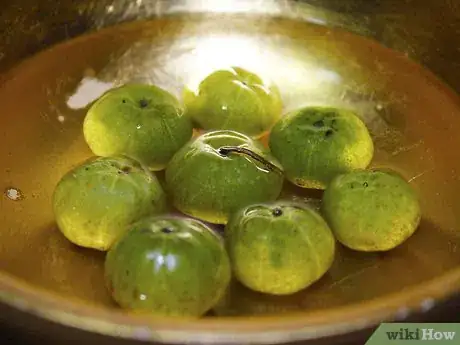
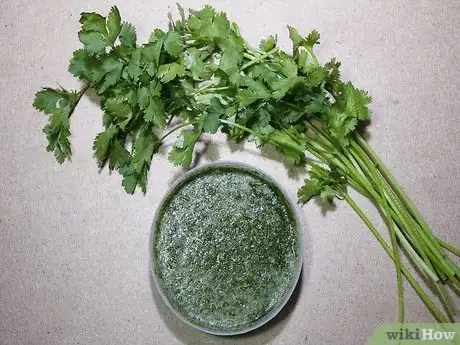

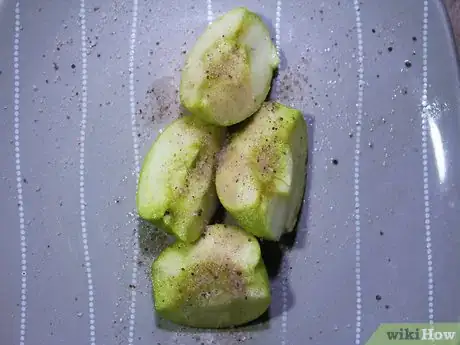
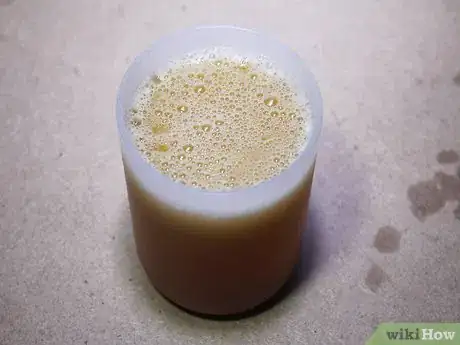
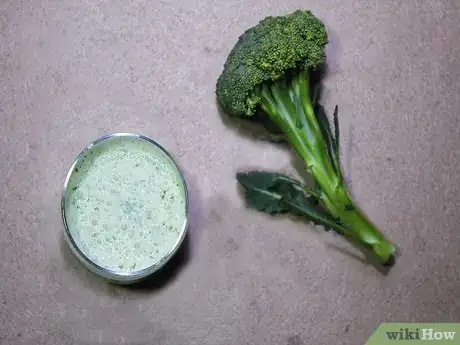
























































Medical Disclaimer
The content of this article is not intended to be a substitute for professional medical advice, examination, diagnosis, or treatment. You should always contact your doctor or other qualified healthcare professional before starting, changing, or stopping any kind of health treatment.
Read More...